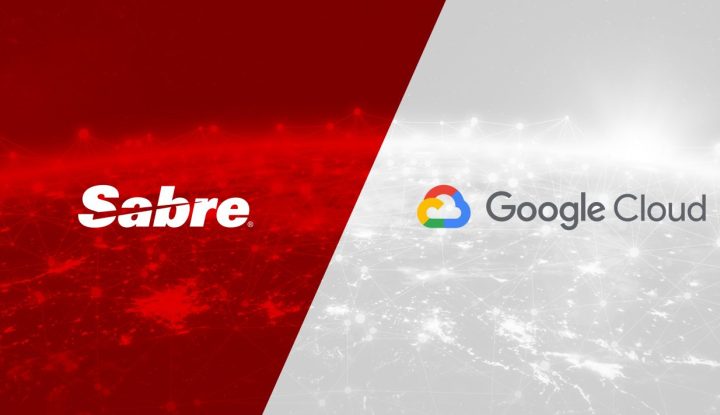The impact of the coronavirus pandemic on travel and the accelerated pace of technology evolution were core themes at Northwestern University Transportation Center’s annual workshop for travel industry and academic professionals. Sergey Shebalov, Vice President of Research at Sabre Labs, joined experts from United Airlines, Hyatt, Georgia Tech, and PROS to discuss how technology is driving meaningful advances in revenue management and impacting the travel ecosystem.

Sabre was a pioneer in introducing Revenue Management to travel in the 1980s. Sabre’s central position in the travel ecosystem gives the company a birds-eye view of the industry’s dynamics and helps team members explore new opportunities for airlines, hotels, and other travel businesses to increase efficiency and generate incremental revenue growth. Sharing knowledge and engaging with other industry leaders is a key element of Sabre’s innovation process.
As its most basic, revenue management means selling the right inventory to the right consumer at the right price and the right time. You can think of it like choosing a parking space at a shopping mall. You might find a spot far from the mall entrance – and then you have to decide whether to take it or drive on to find a closer, more convenient spot. And you might indeed find your ideal space if you wait. Or you might not, because everything closer is already taken; and when you circle back to your original slot, that is now gone, too. In the same way, revenue management is about making decisions that will yield the best outcome and deliver the highest revenue.
COVID-19 brought about a severe drop in travel volumes, depriving the industry of reliable historic data insights for the last few years. Going back to our mall parking lot example, you might know that Saturday afternoon is the busiest time of the week, prompting you to take the first space you find rather than search for a better one. Nowadays, this knowledge about which days or times are busiest is essentially gone.
According to Professor Laurie Garrow, Co-Director of the Center for Urban and Regional Air Mobility (CURAM) at Georgia Tech, the leading indicators of search and shopping data have become much less reliable since the start of the pandemic. This has driven airlines to implement new revenue management, scheduling and dynamic pricing practices to be more flexible, achieve operational efficiency and unlock new revenue streams in times of uncertainty.
Eric Ruhlin, Managing Director, Revenue Decision Support at United Airlines, added that it is also essential to better understand travelers’ objectives and preferences.
Sergey Shebalov of Sabre Labs pointed out that legacy revenue management systems lack real-time customer-focused capabilities. To become better retailers, airlines need next-generation revenue management solutions that will use multiple data sources to provide data-driven insights and retailing recommendations for optimal pricing decisions. According to Shebalov, advanced decision support systems leverage various data sources, including shopping data to adjust for competitive actions; ancillary data to create optimal bundles; or customer segmentation and behavioral data to better match consumers’ preferences.
Steered experimentation helps Sergey and his team to discover new patterns and continuously tune these systems for better performance. At the same time, processing vast amounts of new data requires new algorithms and enhanced processing power.
Michal Klein, Vice President Global Revenue Management at Hyatt Hotels Corporation, explained that continuous investment in technology modernization and more dynamic collaboration between commercial functions are crucial to drive innovation. Adding to this, Zeke Ziliak, formerly Global Vice President, Transportation & Logistics Industries at PROS, highlighted the value of digitalization and AI/ML capabilities to automation and optimization of business processes. Shebalov agreed, voicing his belief that AI/ML technology as leveraged in Sabre’s Travel AI capabilities will bring substantial benefits to both travel businesses and the travelers they served.
Ultimately, the panel concluded that to leverage AI/ML innovations, travel companies will need to strengthen their technology stack and bring more technology capabilities closer to their business strategy. Traveler demands and market forces leave no room for technological inefficiencies. Consumer expectations for personalized, seamless experiences continue to ramp up as they are getting used to more and more AI-driven interactions.
The workshop demonstrated the important role technology plays in travel retailing. Backed by over 30 years of revenue management experience and expertise, Sabre continues to drive revenue management innovation with advanced decision support and consumer-grade user experiences.



